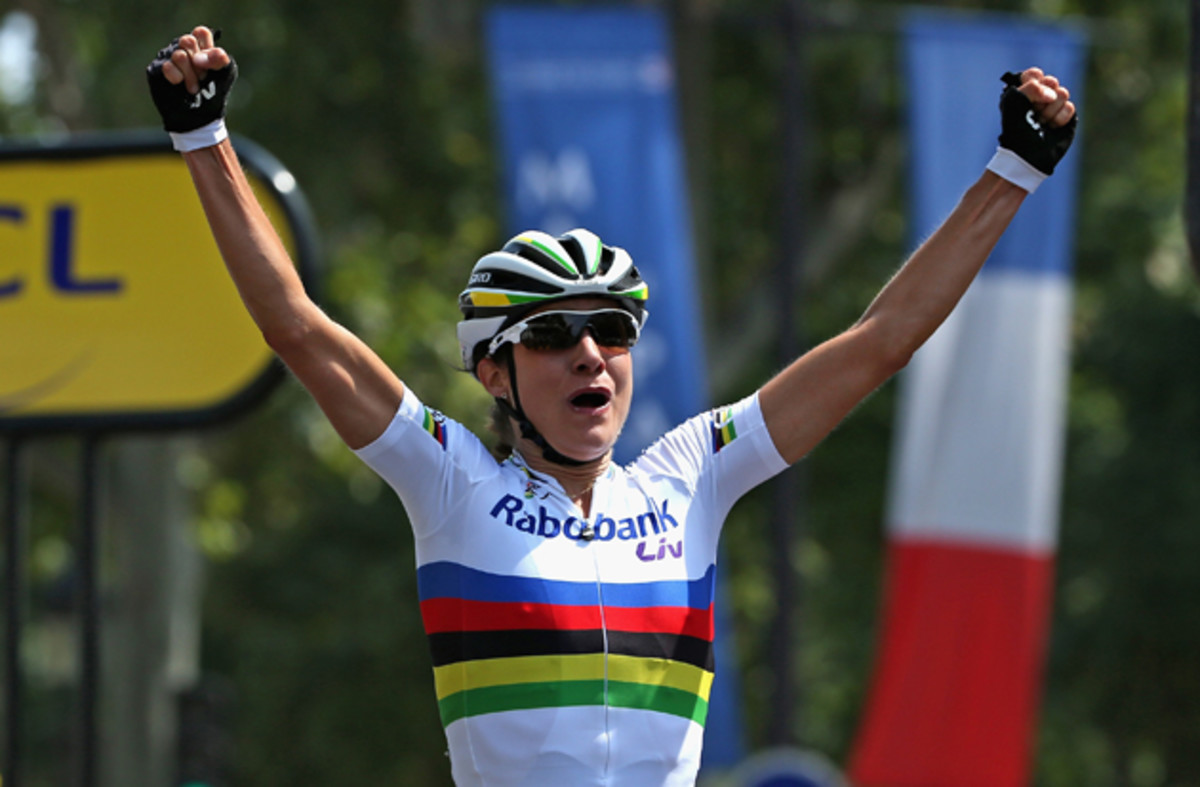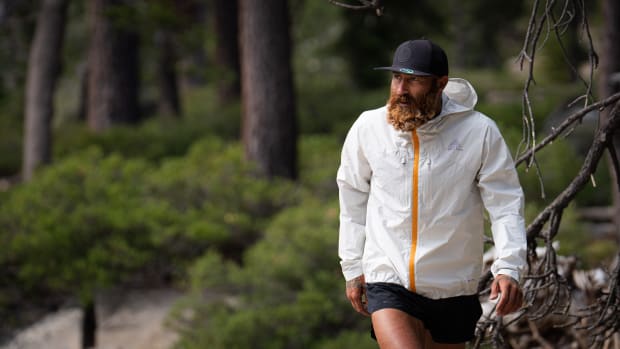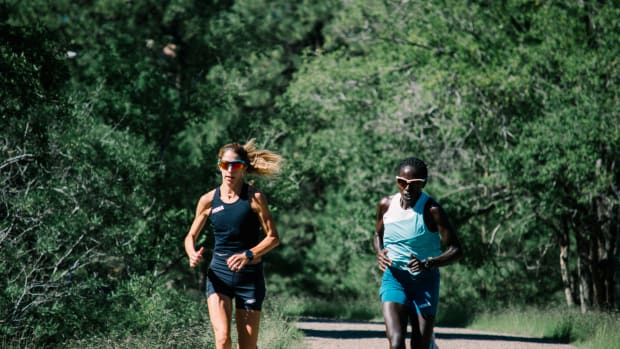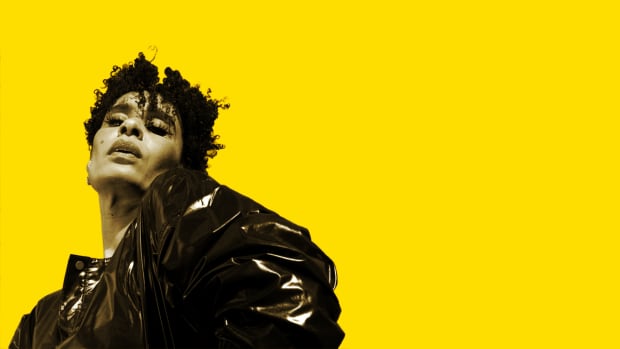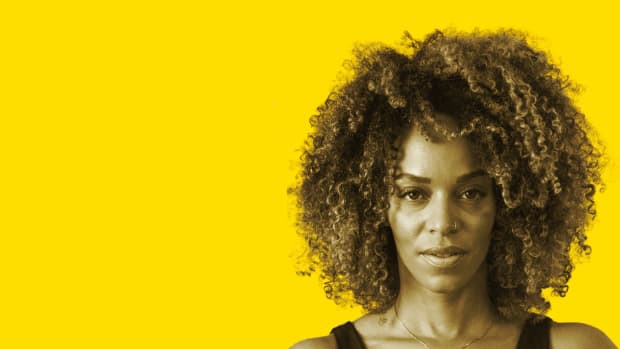Ladies First at the Champs-Elysees: The Tour Adds a Women's Stage
It’s not uncommon to see females on the podium after the final stage of the Tour de France. Usually, they are yellow-dress-clad and kissing the cheek of the newly crowned victor.
This year, the women wore their own cycling kits and celebrated their own victory.
A few hours before the arrival of the men’s peloton on the Champs-Elysées in Paris on Sunday, Marianne Vos of the Netherlands raced to victory in the new women’s stage of the Tour, La Course by Le Tour. This single-stage 90-km race included 13 laps of the Tour’s final circuit.
Vos, a two-time Olympic gold medalist and multiple world champion, says she remembers watching the Tour as a young girl and feeling “really inspired by those men riding bikes and by the yellow jersey.” Vos, one of the most decorated female cyclists in history, claimed her victory after she beat out fellow Dutch rider Kirsten Wild in a long sprint to the finish.
“It’s a big step in this short of a period,” Vos says of La Course. “It will only be a start of something more.”
La Course is the result of a petition created last summer by Vos and other professional cyclists Emma Pooley, Kathryn Bertine and Chrissie Wellington, who implored Tour officials to put on a women’s race. Their original goal was a full-out stage race run parallel to the men’s Tour. But less than a year later, in February, the Amaury Sports Organisation, organizer of the Tour de France, announced La Course, which was at least step in the right direction for the women.
Vos, Wild and Canadian rider Leah Kirchmann all crossed the line at the iconic Champs-Elysées finish within inches of each other on Sunday, but all of the female riders in La Course were grateful to share the spotlight with the men in the Tour.

Marianne Vos of the Netherlands and Rabo Liv celebrates victory on the podium with second placed Kirsten Wild of the Netherlands and Team Giant-Shimano (right) and third placed Leah Kirchmann of Canada and Optum-Kelly Benefit Strategies (left), following La Course by Le Tour de France.
Doug Pensinger/Getty Images
“It’s a really amazing opportunity to have,” says U.S. cyclist Carmen Small, who rides for team Specialized-Lululemon. “To be able to show what women’s cycling represents and our ability as professional athletes is pretty exciting.”
Specialized-Lululemon was among the top outfits racing La Course, along with Rabo Liv (Vos’s team), Giant-Shimano and Orica-AIS. All told, 20 teams, including national teams from France, the Netherlands and Australia, raced on Sunday.
While La Course represents the growth of women’s cycling, this will not be the first time the ladies have saddled up for a part in the Tour.
Women’s cycling had its breakout in the early 1980s. In 1984, the first edition of a women’s Tour de France, the Tour Cycliste Feminine, made its debut and was won by Marianne Martin of the U.S. That stage race lasted just five years before it was moved to a later date, and then, as a result of a series of financial and legal issues, the race, now known as the Grande Boucle Feminine, was altered to no longer be a part of the Tour. A big year in women’s cycling, 1984 also saw the beginning of female cycling in the Olympics.

Vos in action during La Course, where riders raced 90km on Champs Elysees prior to the arrival of the Men's Tour de France final stage.
Doug Pensinger/Getty Images
“Why can the women race back then in the ’80s and we can’t now?” Small says. “It would be fantastic if there was a women’s Tour de France, and we had epic stages. And it should be on the same scale as the men, because we are also professional athletes.”
Many cyclists share her eagerness for a full stage race. Several other tours, domestic and international, have created multi-day races for the female competitors, but women’s full stage races aren’t prevalent among the major tours.
“The Tour de France transcends cycling, especially the United States, where people aren’t going to tell you about Liège-Bastogne-Liège or La Flèche Wallonne, but you mention Tour de France and they know exactly what it is,” says Evelyn “Evie” Stevens says. “It’s exciting now as a woman to say, ‘Well we’re not actually racing the Tour de France, but we are getting to take part in it.’ ”
